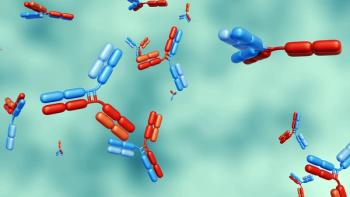
- BioPharm International-09-01-2004
- Volume 17
- Issue 9
French Biotech: A Fast-Growing Industry
Over the last 20 years, France has become a major hub of the European biotechnology sector. The renewed French interest emerged from the perception that progress in biotechnology is good not only for the country's economy but also for the well being of people worldwide and both the private and the public sectors.
Over the last 20 years, France has become a major hub of the European biotechnology sector. The renewed French interest emerged from the perception that progress in biotechnology is good not only for the country's economy but also for the well being of people worldwide and both the private and the public sectors. This realization has produced a cooperative and effective regulatory and fiscal environment. In particular, as of 2004, start-ups benefit from the "Innovative Startups" status. This new legislation allows full tax and social costs exemptions for small and medium-sized enterprises (SMEs). Biotech's growth in France is primarily due to special funding and an active policy supporting technology transfer from academic circles to industry. Additionally, a strong supplier base assists biotech firms in a range of activities. Third party providers and consultants offer a full range of services, including product development assistance, manufacturing of batch products for safety testing or clinical trials, and advice on legal and regulatory affairs, logistics, patenting, marketing, and trade issues.
The French biotechnology industry produced revenue of d830 million in 2003, which makes it the third largest in Europe.
The Biotech Landscape
With over 300 biotech firms and more than 600 service providers and related companies, the French biotechnology industry experienced strong growth and generated revenue in excess of d830 million in 2003, making it the third largest in Europe after the UK and Germany. More than 7,500 individuals are directly employed in the biotech field, moving 165 new therapeutic products from preclinical development to phase 3 trials. A France Biotech Association survey confirms that French biotech is a young, heterogeneous, and promising industry. More than one-third of the companies were created in the last three years, and only 10% are over 10 years old. Approximately one-half of these companies operate from a single site, especially start-ups, but the survey shows that the number of sites increases as firms mature.
Platform 7 of the Institut Pasteur: high-rate long oligonucleotide synthesis
Nearly one-third of French biotech firms experience negative sales growth, particularly the smaller ones, and yet another one-third show sales growth of over 50%. There is a strong concentration of sales among few companies: 80% of all sales are generated by 6% of companies. Despite the economic slowdown's effect on the financial resources available for biotech companies worldwide, the French biotech workforce has grown more than 30% annually since 2000. Research employment increased even faster and now represents almost 50% of the total biotech workforce.
French biotech companies are also diverse in focus. Forty-eight percent concentrate on R&D, 22% are service providers, 16% are partnered with pharmaceutical firms, and only 14% are actually marketing products today. Companies created more than five years ago are more likely to base their business model on R&D and partnership, while younger firms are more inclined to provide services or market products, aiming for faster profitability. Many younger companies favor diagnostic-kit development.
The Tryton bioreactors, introduced by France-based company Biolafitte, ensure optimal culture conditions by controlling all process parameters.
While the biotech industry covers areas as varied as developing cosmetic products, improving crop yield, and cloning animals, one-half of French biotech companies focus on human health applications, especially drugs and medical diagnostics. Their main areas of expertise are oncology (19%), infectious diseases, immunology research, and central nervous system (10 to 12% for each).
The French biotech industry has a handful of mature companies. The largest firms — CEREP, Flamel, IDM, Transgene, Sangstat (Genzyme), Genset (Serono) — including the few that are listed on the stock exchange, employ on average 100 people, have raised more than d50 million each and have several drugs either in development or already on the market. Their annual sales range from 5 to more than d100 million. Most other companies are far from these leaders. Many have not yet generated revenue, indicating both their youth and the long R&D cycles in biotech.
Biopartnerships
Most biotech firms in France have developed partnerships with research centers, hospitals, universities, and other companies. Forty-one percent of the partnerships are between research centers and laboratories, underlining the strong ties between the private and the public sectors. Nonetheless, 31% of the partners are other firms, less than 10% of which are other biotechnology firms. For obvious proximity reasons as well as historical factors, three-quarters of the partnerships are with other European organizations, the majority of which are French companies. French biotech companies also have developed strong ties with their American counterparts; 15% of the partnerships are with US firms.
Patent ownership and licensing form the basis for partnerships between biotech companies. Most of the start-ups are still in the initial R&D phase and rely on others' patents. Half of all patents are filed by fewer than 10 companies — the better established ones. Almost 40% of smaller biotech firms are currently working under other companies' patents. This can negatively effect funding, since investors value strong intellectual property.
R&D with a French Touch
France offers wide-ranging expertise in industrial and academic research. There are several world-class national research institutes such as the National Center for Research and Sciences (CNRS), The French Institute of Health and Medical Research (INSERM, the French equivalent of NIH), National Institute for Agro-food Research (INRA), and the Center for Atomic Energy (CEA). More than 90 universities and academic institutes are dedicated to life sciences, including the famous Pasteur Institute and the Curie Institute. These organizations are renowned for excellence in oncology, immunology, infectious diseases, the central nervous system, drug discovery, gene therapy, and metabolic diseases.
To promote genomic research in France, the Ministry of Research created a national network of "genopoles" centered around Evry, south of Paris, and the national centers: National Sequencing Center (CNS), National Genotyping Center (CNG), Infobiogen. The network now counts eight genopoles located near Paris, Lille, Strasbourg, Montpellier, Toulouse, Marseille-Nice, Lyon-Grenoble, and Rennes-Nantes. Each specializes in one or more of the five axes of France's genomics program: transcriptome (functional genomics), structural genomics, functional exploration, proteomics, and bio-computing.
As an example, the recently inaugurated Institut Pasteur Genopole is one component of the Paris Genopole Evry/Ile-de-France. It is devoted to microbiology, specifically to the analysis of pathogenic microorganisms and models for preventing and combating infectious diseases. Several Institut Pasteur teams specializing in microorganisms have been involved in sequencing the genomes of these organisms and exploring the structure and function of their genes. The Institut Pasteur Genopole now has the most advanced equipment needed for genomic and post-genomic projects. The development of technological platforms is one of the strategic priorities of the Institut Pasteur, which for the past three years has made a very considerable investment to this end: d28 million, 30% of which is from the Ministry of Research. The platforms include protein analysis and microsequencing, biophysics of macromolecules, cytometry, molecular cryomicroscopy, dynamic imagery, electron microscopy, genomics, DNA chips, proteomics, genomic integration and analysis, recombinant and antibody protein production, crystallogenesis and x-ray diffraction, and high-rate long oligonucleotide synthesis.
On the private side, France has the strongest pharmaceutical industry in Europe. Forty percent of drugs manufactured in Europe are produced in France, with sales of over d34.4 billion and a forecasted 9% growth for 2004. R&D investment amounted to d3.4 billion in 2002. More than 100,000 people are employed by French pharmaceutical firms, with 18,000 involved in R&D. With the merger of Sanofi-Synthelabo and Aventis in 2004, France's pharmaceutical world champion ranks third behind Pfizer and GSK.
Biomanufacturing
Subcontracted biomanufacturing is still at an embryonic stage in France. However, the recent France Biotech Association survey shows that several companies will need biomanufacturing in the near future and will not have any option but to seek contract manufacturing organizations (CMOs) outside of France. Manufacturing biotech products is a strategic issue since the challenge is for France to attract capital investment to develop a biomanufacturing industry that will produce new generations of biotech products. Therefore, serious measures should be promoted to foster the development of a bioproduction industry. With increasing demand for biomanufacturing, the financial markets' attitude towards it should shift. Because biomanufacturing, like any production industry, must face competition, it is theoretically less promising in terms of potential revenues than traditional biotech investing heavily in R&D. Nevertheless, biomanufacturing appears to be a more reliable investment and should trigger venture capital interest in the near future. Its growth should be considered an opportunity for both established biotechs and newcomers.
Some companies are seizing the opportunity by making innovative production equipment available to CMOs. For example, with its expertise in fermentation and automated systems, Biolafitte (a division of Pierre Guerin) recently introduced a new generation of autoclavable bioreactors. Marketed as a stirred tank, the Tryton bioreactors are suited to laboratory environments and process development, and they conform to pharmaceutical industry standards. These bioreactors ensure optimal culture conditions by controlling all process parameters, including temperature, speed, pH, pO2, anti-foam, gas flowrates, weight or level, and optical density. The system's user-friendly control unit is based on the LabWindows process control language from National Instruments and a real-time processor with a fast Ethernet connection to the user interface.
The user interface is provided by a tablet PC with a touch screen, keyboard, and mouse, running the Windows operating system. The Nepture control software package for fermentation process optimization allows the connection and supervision of up to 12 bioreactors via Ethernet.
Biotech Funding
The funding climate for the French biotech industry is currently favorable, with public funds amounting to d60 million and total private equity investment averaging d230 million yearly since 2001. One out of three biotech firms receives public funds, 85% from the regional and national levels. Financial assistance available to French biotech companies includes grants from The French Agency for Innovation (ANVAR), which provides seed capital and advice on the creation of innovative enterprises. In recent years, these funds have shifted to companies with a diversified portfolio of biotech products, some of which are in preclinical development. Government innovation initiatives include the Law on Innovation & Research, which enables public researchers to create private companies, resulting in enhanced cooperation between the public and private sectors. New companies now benefit from the "Innovative Startups" status, which applies to existing or new biotech SMEs spending at least 15% of their total annual expenditures on R&D, are less than eight years old, and employ less than 250 employees worldwide. It is expected to be a key driver in the creation of new biotech companies and in stimulating growth of existing businesses. Investors in young biotechs also benefit from a full and uncapped capital gains tax exemption.
France has always been a strong supporter of technology, particularly in the life sciences. Thanks to a strong commitment from the French authorities with the "Innovation Startups" status and the R&D Tax credit, France has all the assets to be a player in the Biotech industry.
The French Technology Press Office in Chicago prepared this article.
Articles in this issue
over 21 years ago
Editorial—Public Pressure, the Press, Politics, and Profitsover 21 years ago
Chloroplasts: Transforming Biopharmaceutical Manufacturingover 21 years ago
BMS or PLC? Controlling the Regulated Environmentover 21 years ago
Overseas Outsourcing: The Advantages of IT Offshoringover 21 years ago
Applications: The Disposables OptionNewsletter
Stay at the forefront of biopharmaceutical innovation—subscribe to BioPharm International for expert insights on drug development, manufacturing, compliance, and more.




